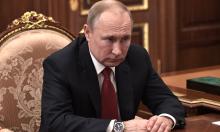Portugal: New year, new faces
Last Sunday’s disastrous results in the municipal elections made Portuguese prime Minister Antonio Guterres decide to present his resignation, which was accepted by President Jorge Sampaio. Ferro Rodrigues has the backing of the various factions within the party to stand against Durao Barroso, the leader of the Social Democrats (PSD), Carlos Carvalhas of the Portuguese Communist Party, Francisco Lousa and Miguel Portas of the Left Block and a candidate yet to be nominated by the conservative Popular Party (PP).
Eduardo Ferro Rodrigues, an economist, has been politically active since his student days. Before he founded the Movement of the Socialist Left (MES) in 1974, he had already been arrested by the PIDE, the fascist secret police of Salazar’s regime. With the extinction of the MES, he joined the Socialist Party in 1986 and was elected a Member of Parliament in the following year.
In 1997, Antonio Guterres promoted him to Minister of Work after two years in junior positions in the government and in the same year, he became Minister of Social Affairs. His successful work in creating a Minimum Income for poor families and linking the receipt of this to attendance of the children of these families at school has made him one of the more popular members of this government, which otherwise has been seen as inept.
While Ferro Rodrigues must be confirmed as the leader of the party in a Congress, he is a candidate who united the three factions of the party behind him. The same can be said for the time being for the leader of the main opposition party, the Social Democrats (PSD), which governed Portugal from 1987 to 1995. Durao Barroso, formerly the Portuguese Foreign Minister is ready for a make-or-break challenge for the Premiership. His lack of charisma and negative TV image are his main personal shortcomings, while his party received more municipalities than the Socialists – but less votes – in the municipal elections. Waiting in the sidelines is the eternal candidate for the leadership of the PSD, Pedro Santana Lopes, elected as the Mayor of Lisbon last Sunday.
Under Carlos Carvalhas, the CDU (Coalition between the Portuguese Communist Party, PCP and the Greens and Ecology Party, PEV) is unable to break through the 10% barrier, while the Left Block, a new grouping, could be the victim of a polarisation of votes in a time of economic crisis.
The conservative Popular Party (PP) has been held back for the last four years by the political posing of its leader, Paulo Portas, who will face the previous and more charismatic leader of the party, Manuel Monteiro, at the party congress to choose the leader who will fight the election. However, even with Monteiro, the PP should not obtain more than 10& of the vote.
This means that the bulk of the votes will be distributed between the Socialists and the Social Democrats, a distribution which, if based on current opinion polls, should be even.
Timothy BANCROFT-HINCHEY PRAVDA.Ru
Subscribe to Pravda.Ru Telegram channel, Facebook, RSS!



